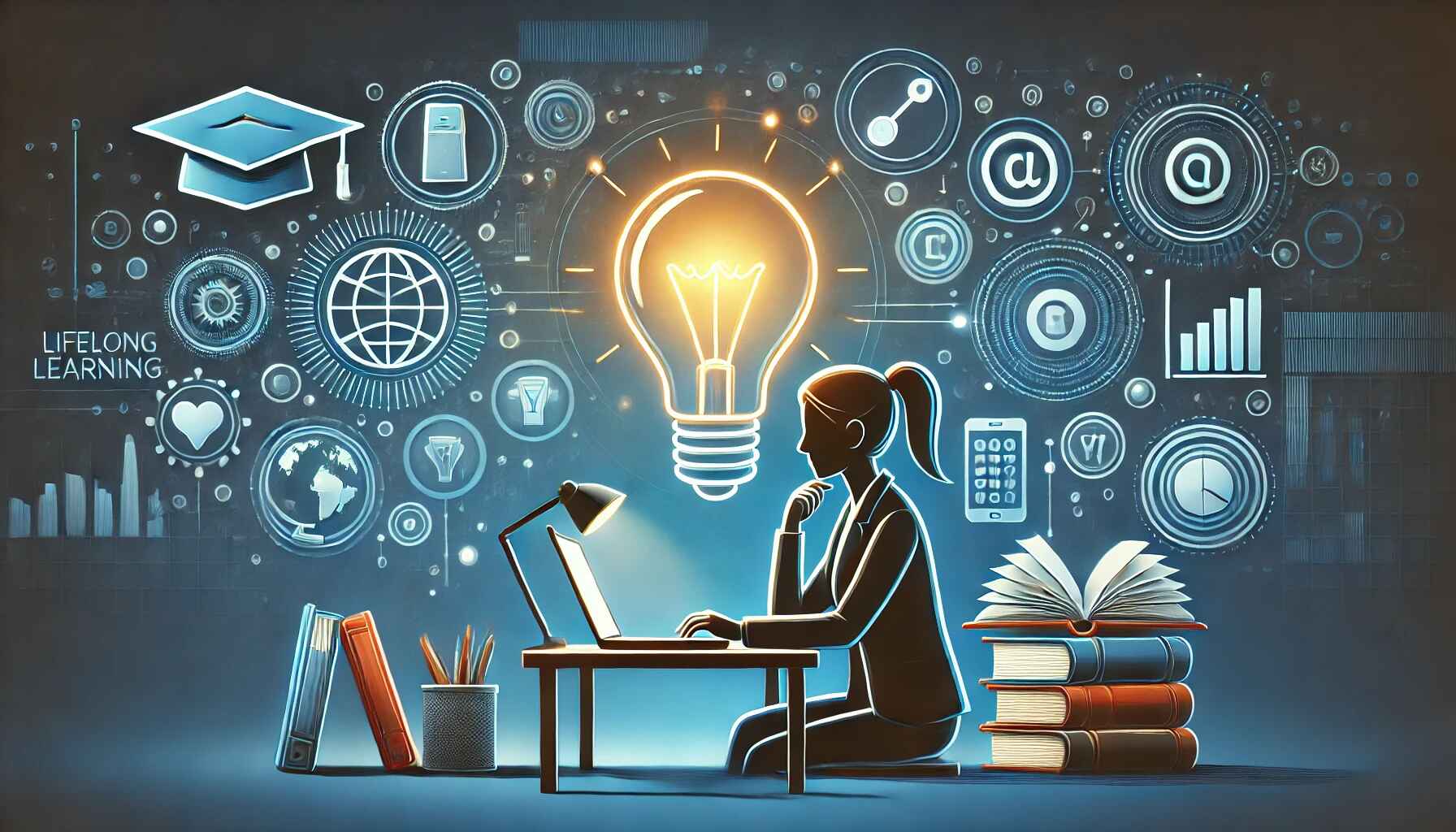Grow Your Skills: Simple Steps to Lifelong Learning
Managing to be pertinent and competitive in the modern fast world needs ongoing professional and personal growth efforts. Lifelong learning is the key to keeping up with the ever-evolving demands of the modern age. Using the right approaches will let us grow our abilities as well as follow an attitude that stimulates constant growth.
Lifelong learning is what?
Throughout a person's life lifelong learning means the deliberate search of knowledge and abilities for personal or career reasons. Formal education stresses self-motivated, curiosity-driven learning; it is quite the opposite. This system improves flexibility, inventiveness, and resiliency.
Why is Lifelong Learning Important?
Career Advancement: Staying updated with industry trends makes us valuable assets in any organization.
Personal Growth: Learning new skills improves confidence, creativity, and problem-solving abilities.
Adaptability: As technology evolves, lifelong learners can easily adapt to changes.
Networking Opportunities: Engaging in learning communities broadens our professional and social networks.
Steps to Begin Your Lifelong Learning Journey
1:Define your objectives for learning.
Begin with a definition of your objectives. Clearly defined goals will direct your work and keep you motivated, regardless of whether you are seeking career advancement, personal growth, or a particular certification.
2. Cultivate a growth mindset.
Popularized by psychologist Carol Dweck, a growth mindset is one in which we believe our capacity to acquire abilities by diligence and determination. Accept obstacles, gain from mistakes, and see criticism as a chance for growth.
3. Create a Learning Plan
Outline a structured approach to achieve your goals:
Identify Resources: Books, online courses, workshops, podcasts, and mentoring opportunities.
Set a Schedule: Dedicate consistent time to learning, whether daily or weekly.
Track Progress: Use tools like journals or apps to monitor your development.
4. Leverage Online Learning Platforms
Online platforms provide a wealth of knowledge:
Massive Open Online Courses (MOOCs): Websites like Coursera, Udemy, and edX offer courses across diverse fields.
Skill-Specific Platforms: Learn coding on Codecademy, languages on Duolingo, or graphic design on Canva.
Free Resources: Explore YouTube tutorials, blogs, and open-access journals.
5. Engage in Experiential Learning
Practical application reinforces theoretical knowledge. Try these methods:
Internships and Volunteering: Gain hands-on experience in real-world scenarios.
Projects: Undertake personal or professional projects to apply your skills.
Workshops and Seminars: Interactive sessions deepen understanding and foster collaboration.
6. Join Learning Communities
Learning is more effective when done collaboratively. Join communities that align with your interests:
Local Groups: Meetup and similar platforms connect you with like-minded individuals.
Online Forums: Platforms like Reddit, Quora, and niche forums are rich in knowledge.
Professional Networks: LinkedIn groups and industry-specific associations provide mentorship and insights.
7. Cultivate a Reading Habit
Books are timeless reservoirs of knowledge. Dedicate time to reading:
Professional Books: Stay updated on industry trends and methodologies.
Self-Improvement Books: Titles like Atomic Habits by James Clear inspire positive change.
Fiction and Nonfiction: Expand creativity and cultural understanding.
8. Seek Feedback and Reflect
Regular feedback helps gauge progress:
Peer Feedback: Collaborate with colleagues or friends for constructive criticism.
Self-Reflection: Evaluate your growth through journaling or self-assessment tools.
9. Balance Learning and Rest
Overloading yourself can lead to burnout. Balance learning with relaxation:
Set Realistic Goals: Avoid overcommitting to multiple courses simultaneously.
Take Breaks: Regular intervals improve focus and retention.
Practice Mindfulness: Activities like meditation enhance mental clarity.
10. Celebrate Your Achievements
Recognizing milestones keeps motivation high. Celebrate small wins and reward yourself for your efforts. This positive reinforcement encourages consistent learning.
The Contributions of Technology in Lifelong Learning
Technology is changing our method of information acquisition. Learning management systems, artificial intelligence, and virtual reality among tools that customize education. Notion, Evernote, and Trello assist one to arrange and simplify the learning process.
The Future of Lifelong Learning
The demand for lifelong learning will only increase given the fast pace of technological and global developments. Embracing this road helps us to become relevant, strong, and versatile in every sector.
The Role of Technology in Lifelong Learning Online learning platforms like Coursera, edX, and Udemy have democratized education, offering courses on everything from writing to writing. Artificial intelligence (AI) is further enhancing this knowledge by tailoring learning to their needs, allowing students to progress at their own pace.
Virtual reality (VR) and augmented reality (AR) have the potential to transform lifelong learning experiences by providing a space for skill development. Imagine learning surgical techniques using VR art or practicing public speaking in a real classroom. These methods make learning fun and effective, bridging the gap between theory and application.
The shift to microlearning
In today’s fast-paced world, microlearning has become a great way to acquire new skills. Students can now access short modules that fit into their busy schedules instead of having to go through lengthy courses. Platforms like LinkedIn Learning and Skillshare solve this problem by offering short courses on specific skills.
Microlearning can be especially useful for professionals who want to stay relevant in their industry. For example, marketers can quickly learn the latest SEO techniques or social media practices without disrupting their daily work. This approach ensures continuous growth and balances work and personal commitment.
Opportunities for Inclusive Lifelong Learning
The future of lifelong learning will prioritize inclusion, ensuring that people of all backgrounds have access to education. Governments and organizations are increasingly recognizing the need to close educational gaps and provide opportunities to underrepresented populations. Initiatives such as Google’s Career Certificate and Microsoft’s Global Skills Program are designed to equip people with the skills they need for the workplace, regardless of their socioeconomic status.









